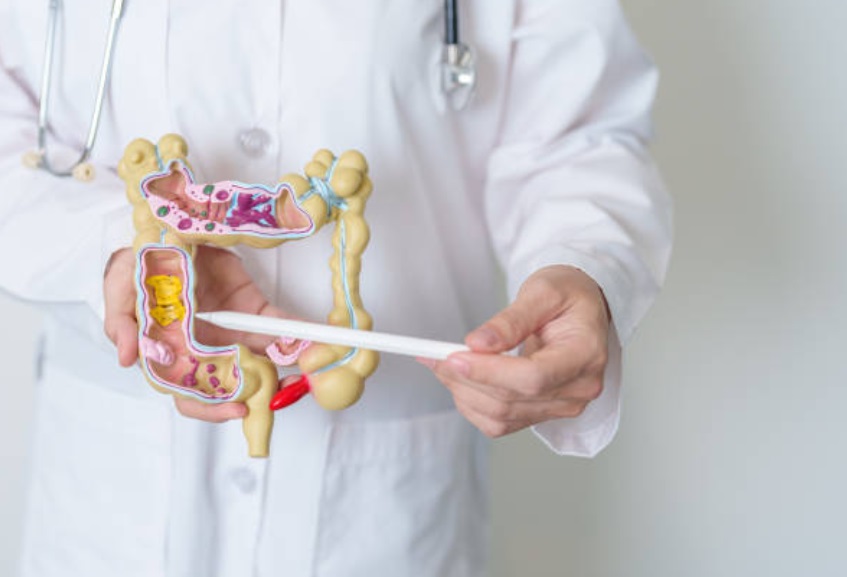Crohn’s disease, an inflammatory bowel disease (IBD), can bring a wave of discomfort and disruption to your life. Chronic inflammation in the digestive tract leads to symptoms like diarrhea, abdominal pain, fatigue, and weight loss. While there’s no cure, there are effective treatments to manage Crohn’s and achieve remission, a period where symptoms are minimal or absent. This article explores the various treatment options available for Crohn’s disease, empowering you to take control of your health journey.
Understanding the Goals of Treatment
Treatment for Crohn’s disease focuses on two primary goals:
- Reducing inflammation: This is crucial for alleviating symptoms and allowing damaged tissues in the digestive tract to heal.
- Preventing flare-ups: Once inflammation subsides and you enter remission, maintaining that state becomes a priority.
The specific treatment plan for you will depend on several factors, including:
- Severity of your symptoms
- Location and extent of inflammation in your digestive tract
- Your overall health and medical history
- Your response to previous treatments
Medication: The Mainstay of Treatment
Medications play a central role in managing Crohn’s disease. Here’s a breakdown of the different types commonly used:
- Anti-inflammatory drugs:
- Aminosalicylates (5-ASAs): These medications, such as mesalamine (Asacol, Lialda), are often the first line of defense for mild to moderate Crohn’s affecting the colon. They work by reducing inflammation in the lining of the intestines.
- Corticosteroids: Powerful anti-inflammatory drugs like prednisone are highly effective for inducing remission but are typically used short-term due to potential side effects with long-term use.
- Immunomodulators: These medications, like azathioprine (Imuran) and mercaptopurine (Purinethol), suppress your immune system’s overactive response that contributes to inflammation. They can take several weeks to show their full effect.
- Biological therapies: These newer, targeted medications block specific molecules involved in the inflammatory process. Examples include adalimumab (Humira), infliximab (Remicade), vedolizumab (Entyvio), and ustekinumab (Stelara). They are often used when other medications haven’t been effective or for those who cannot tolerate immunomodulators.
Dietary Modifications for Improved Management
Diet plays a significant role in managing Crohn’s disease. While there’s no one-size-fits-all Crohn’s diet, certain dietary strategies can help reduce symptoms and improve overall well-being:
- Identifying food triggers: Some foods, like dairy products, spicy foods, or high-fiber foods, can worsen symptoms in some individuals. Keeping a food diary to identify and eliminate triggers can offer significant relief.
- Smaller, more frequent meals: Eating smaller meals throughout the day may be easier to tolerate than large, heavy meals.
- Staying hydrated: Dehydration can exacerbate symptoms. Aim to drink plenty of fluids throughout the day.
- Nutritional support: During flare-ups, you might struggle to meet your nutritional needs. Consider oral nutritional supplements or enteral nutrition (feeding tube) to ensure you’re getting enough calories and essential nutrients.
Surgery: A Consideration in Specific Cases
Surgery is generally not a first-line treatment for Crohn’s disease. However, it may be necessary in certain situations:
- Severe complications: If medical treatments fail to control inflammation or complications like bowel blockage or fistulas (abnormal connections between parts of the intestines or between the intestines and other organs) arise, surgery might be needed to remove the affected portion of the intestine.
- Intestinal strictures: Narrowing of the intestine due to scar tissue might necessitate surgery to widen the passage.
Complementary Therapies for Additional Support
While not a substitute for conventional treatment, some complementary therapies can offer additional support in managing Crohn’s disease:
- Stress management: Chronic stress can worsen Crohn’s symptoms. Techniques like yoga, meditation, and deep breathing exercises can be helpful for relaxation and stress reduction.
- Cognitive behavioral therapy (CBT): This form of therapy can equip you with strategies to cope with the emotional challenges associated with Crohn’t disease.
- Probiotics: These supplements containing live bacteria may help restore the balance of gut flora, potentially improving gut health and reducing symptoms in some individuals.
Living a Fulfilling Life with Crohn’s Disease
Crohn’s disease can be a challenging condition, but with the right treatment approach, you can achieve remission and live a full, active life. Here are some tips for navigating life with Crohn’s:
- Build a strong support system: Surround yourself with family, friends, and healthcare professionals who understand your condition and offer emotional support.
- Stay informed and involved in your care: Learn as much as you can about Crohn’s disease and treatment options. Don’t hesitate to ask your doctor questions and actively participate in treatment decisions.
- Maintain a healthy lifestyle: Regular exercise, adequate sleep, and managing stress are crucial for overall health and well-being, potentially reducing the frequency and severity of flare-ups.
- Connect with others: Joining a Crohn’s disease support group can connect you with others who understand your challenges and can offer valuable advice and encouragement.
- Advocate for yourself: Be your own health advocate. If you’re not satisfied with your current treatment plan, speak to your doctor and explore alternative options. Don’t be afraid to seek a second opinion.
The Future of Crohn’s Disease Treatment
Research into Crohn’s disease is ongoing, with promising advancements on the horizon. Some areas of exploration include:
- Personalized medicine: Tailoring treatment plans based on an individual’s unique genetic makeup and disease profile.
- Fecal microbiota transplantation (FMT): Restoring gut flora balance by transplanting healthy bacteria from a donor.
- Novel drug targets: Identifying and targeting new molecules involved in the inflammatory process could lead to the development of more effective medications with fewer side effects.
- Stem cell therapy: Studies are investigating the potential of stem cells to repair damaged tissues in the digestive tract.
Conclusion
Crohn’s disease can be a complex condition, but with the right treatment approach and lifestyle modifications, you can manage your symptoms and live a fulfilling life. By working closely with your healthcare team, staying informed, and advocating for yourself, you can take control of your Crohn’s disease and navigate your health journey with confidence. Remember, you’re not alone. There’s a wealth of resources available to support you on this path.
